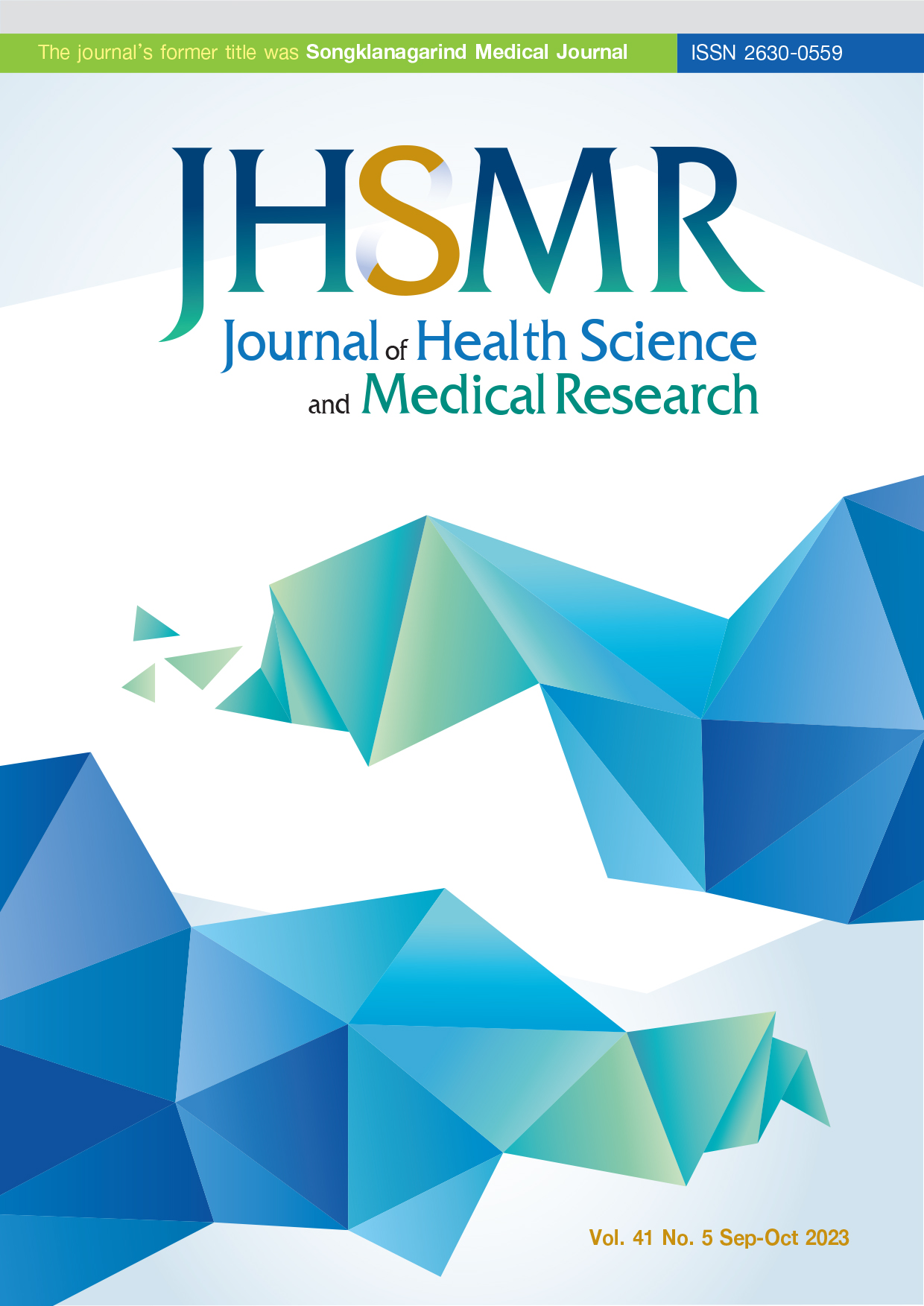Assessment of Surgery and Anesthesia Services and Patients’ Attitude Towards Informed Consent: The Case of a Specialized and Comprehensive University Hospital in Northern Ethiopia
DOI:
https://doi.org/10.31584/jhsmr.2023944Keywords:
anesthesia, ayder, consent, patients, services, surgeryAbstract
Objective: Healthcare providers need to establish close relationships with patients planning to undergo major elective surgery as this helps produce positive patient outcomes. This study aimed at investigating surgery and anesthesia services and patients’ attitude toward informed consent at Ayder comprehensive specialized university hospital, in Northern Ethiopia.
Material and Methods: A facility-based cross-sectional study was conducted in the biggest health facility in Northern Ethiopia. Four hundred ten patients with major elective surgery were recruited. A structured questionnaire was used to collect socio-demographics, anesthesia and surgery services and the attitude of patients toward informed consent. Descriptive results were presented using frequencies and tables. Regression analysis was accompanied by an odds ratio and a 95% confidence interval was run to identify factors associated with the outcome variable.
Results: Study participants’ mean age was 36.1+11.7. Around two-thirds (71.7%) and one-fourth (26.6%) of the study participants were informed about their proposed surgical procedure and its possible complications, respectively. Two hundred ninety four (66.8%) and 88 (21.5%) were made aware of the type of anesthesia that was going to be administered and possible complications. About half (50.7%) had expressed a positive attitude towards informed consent. Rural residents have about twice (AOR=1.9; 95% CI: 1.06-2.73) higher odds of expressing a positive attitude towards the informed consent than their counterparts.
Conclusion: The study revealed that the proportion of patients who were informed about their anesthesia-surgery services was moderate. Besides, patients’ attitude toward informed consent was poor. The residence was a good predictor of positive patients’ attitudes toward informed consent. Thus, healthcare professionals in the surgery department should establish clear and transparent communication with patients about surgery and anesthesia-related services.
References
Gosselin RA, Gyamfi YA, Contini S. Challenges of meeting surgical needs in the developing world. World J Surg 2011; 35:258-61.
Shevde K, Panagopoulos G. A survey of 800 patients’ knowledge, attitudes, and concerns regarding anesthesia. Anesth Analg 1991;73:190-8.
Matioc AA. An Anesthesiologist’s Perspective on the History of Basic Airway Management The “Preanesthetic” Era—1700 to 1846. Anesthesiology 2016;124:301-11.
Hanson M, Pitt D. Informed consent for surgery: risk discussion and documentation. Can J Surg 2017;60:69.
Huang Y, Yang K, Ren H, Luo A. A survey of elective surgical patients’ attitudes toward anesthesia in PUMC hospital. Chin Med Sci J 2002;17:77-80.
Marulasiddappa V, Nethra HN. Assessment of surgical patients’ knowledge about anaesthesia and anaesthesiologist in a tertiary care teaching institute-a survey. Int J Res Med Sci 2018;6:486.
Gebremedhn EG, Chekol WB, Amberbir WD, Flatie TD. Patient satisfaction with anaesthesia services and associated factors at the University of Gondar Hospital, 2013: a cross-sectional study. BMC Res Notes 2015;8:377.
Naod B, Admasu W, Ahmed Y. Patients’ Knowledge and Attitude towards Anesthesia in Tikur Anbesa Specialized Hospital. Int J Anesth Res 2016;4:229-35.
Paruch JL, Ko CY, Bilimoria KY. An opportunity to improve informed consent and shared decision making: the role of the ACS NSQIP Surgical Risk Calculator in oncology. Ann Surg Oncol 2014;21:5-7.
Theologis AA, Anaya A, Sabatini C, Sucato DJ, Parent S, Erickson M, Diab M. Surgical consent of children and guardians for the treatment of adolescent idiopathic scoliosis is incompletely informed. Spine (Phila Pa 1976) 2016;41:53-61.
Raper SE, Sarwer DB. Informed consent issues in the conduct of bariatric surgery. Surg Obes Relat Dis 2008;4:608.
Shekelle PG, Wachter RM, Pronovost. Making health care safer II: an updated critical analysis of the evidence for patient safety practices. Evid Rep Technol Assess (Full Rep) 2013;1-945.
Yael S, Alicia F, Rebecca S, Dean S. Interventions to improve patient comprehension in informed consent for medical and surgical procedures: a systematic review. Med Decis Making 2011;31:151-73.
Convie LJ, Carson E, McCusker D, McCain RS, McKinley N, Campbell WJ, et al. The patient and clinician experience of informed consent for surgery: a systematic review of the qualitative evidence. BMC Medical Ethics 2020;21:58.
Howlader MH, Dhanji AR, Uppal R, Magee P, Wood AJ, Anyanwu AC. Patients’ views of the consent process for adult cardiac surgery: questionnaire survey. Scand Cardiovasc J 2004;38:363-8.
Hofer Ck, Ganter Mt, Furrer L, Guthauser G, Klaghofer R, Zollinger A. Patients ‘needs and expectations regarding anaesthesia. A survey on the pre-anaesthetic visit of patients and anaesthesiologists. Anaesthesist 2004;53:1061-8.
Eyelade R, Akinyemi O, Adewole F. Patients’ perception and knowledge of anaesthesia and anesthetists—a questionnaire survey. S Afr J Anaesthesiol Analg 2010;16:28-31.
Jawaid M, Farhan M, Masood Z, Husnain SMN. Preoperative Informed Consent: Is It Truly Informed? Iranian J Publ Health 2012;41:25-30.
Adisa AO, Onakpoya UU, Oladele AO, Lawal OO. Informed consent in surgery: an audit of practice in Ile-Ife, Nigeria. Niger J Clin Pract 2008;11:206-10.
Valeria T, Germán G, Ubaldo Q, Liliana P, Yesid D, Mauricio P, et al. Perception about the anesthesiologist–patient relationship assessed during the post-operative of ASA I and II patients at level III and IV institutions (RAP-2 trial) in Cali, Colombia. Rev Colomb Anestesiol 2014;42:20-7.
Fernanda L, Leopoldo M, Sckarlet E, Adriano D, Yara M. Patient perceptions about anesthesia and anesthesiologists before and after surgical procedures. Sao Paulo Med J 2011;129:224-9.
Márcio PM, Karin V, Emiliane NS, Rita CA. Surgical patients’ understanding of the free and informed consent form. Acta Paul Enferm 2016;29:291-7.
Joseph O, William B, Ian M, Charles I, Haruna K, Gabriel N, et al. Informed consent in clinical practice: patients’ experiences and perspectives following surgery. BMC Res Notes 2015;8: 765.
Erminia A, Sharon B, Mariagrazia C, Fabiola MC, Teresa DL, Francesco A, et al. Does written informed consent adequately inform surgical patients? A cross sectional study. BMC Medical Ethics 2019;20:1.
Downloads
Published
How to Cite
Issue
Section
License

This work is licensed under a Creative Commons Attribution-NonCommercial-NoDerivatives 4.0 International License.
























